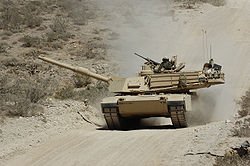Exchange of Sensitive Information Focused on the US/Mexican Operations in the Drug War
By Bill Conroy
Special to The Narco News Bulletin
August 9, 2012
 |
However, the diplomat expresses concern that the Fort Bliss meeting was infiltrated by the “cartels,” whom he contends have “penetrated both US and Mexican law enforcement.”
The Mexican diplomat is referred to as “MX1” in the some of the emails obtained by WikiLeaks but also identified by name in others.
The description of MX1 in the emails matches the publicly available information on Fernando de la Mora Salcedo, a Mexican foreign service officer who studied law at the University of New Mexico, served in the Mexican Consulate in El Paso, Texas, and is currently stationed in the Mexican Consulate in Phoenix.
The disclosures made in the emails obtained by WikiLeaks seem to show that a high-level Mexican official was dealing his country’s national secrets to US entities. Whether that act was by design, as part of a Mexican intelligence operation, or a case of treachery is not clear, but the fact that these emails are now public, available on the Internet, likely means that question will have to be addressed at some level within the Mexican and US governments.
The emails between the Mexican diplomat, aka MX1, and the Austin, Texas-based private intelligence firm, called Stratfor, were drafted between 2008 and 2011.
Stratfor, which describes itself as a privately owned “subscription-based provider of geopolitical analysis,” has been billed in the media as a “shadow CIA.” The firm serves both corporate and government clients, including US law enforcement and intelligence agencies, and also has cultivated a vast source network, in both the corporate and government world, that crosses international borders — and Stratfor also shares information with those sources.
Stratfor did not provide any comment on the emails disclosed by WikiLeaks when contacted recently via email by Narco News. However, the firm issued a public statement earlier this year addressing the leaked emails — dubbed the Global Intelligence Files by WikiLeaks:
“Some of the emails may be forged or altered to include inaccuracies; some may be authentic,” states the press release issued by Stratfor. “We will not validate either. Nor will we explain the thinking that went into them. Having had our property stolen, we will not be victimized twice by submitting to questioning about them.”
Behind the Masks
Readers will have to judge for themselves whether the Stratfor emails obtained by WikiLeaks are the genuine deal. The Mexican diplomat Fernando de la Mora |
From the Stratfor email, drafted on Dec. 16, 2010:
He is the youngest FSO [foreign service officer] in recent Mexican history … and has been appointed the GOM [government of Mexico] point man on SB1070 in Arizona [the anti-immigration legislation adopted by that state], which is essentially like being the U.S. FSO in charge of Afghanistan in Kabul. The GOM paid for his law school stint at UNM [the University of New Mexico] to prepare him for more interactions with U.S. law enforcement and legislators. He is also being given a free hand to speak to US law enforcement and I think he doubles duty with CISEN [Mexico’s equivalent of the CIA], but he won’t tell me which I understand. But his contacts in Mexican intelligence and law enforcement are too great for someone who — at that age — should be stamping passports.As evidence of the connections the Mexican diplomat, MX1, allegedly had with Mexico’s intelligence agency, CISEN, another Stratfor email, penned on April 2, 2008, offers this insight about him:
He [MX1] thought it would be useful if he got us in touch with the Mexican Intel Bureau Chief in El Paso (they have one, a new development — I think I reported this a few months ago when it happened in one of my reports). Fernando [MX1] says that if you want to go to El Paso and meet with them he can arrange a meeting. That would be the CISEN Bureau Chief in El Paso.And in yet another Stratfor email, with the subject line “Fwd: Another question for MX1” a question from Stratfor analysts is directed to MX1, and his real name is revealed as Fernando de la Mora.
A 2012 directory published by the US Department of State, which lists all foreign consular offices in the US and their lead officials, shows that Fernando de la Mora Salcedo serves as “consul” in the Phoenix office of the Mexican Consulate in Arizona. A 2010 story on the website of the University of New Mexico School of Law also indicates that Fernando de la Mora, “a Mexican Foreign Service Officer, received a certificate for completing a year-long program in U.S. legal studies as a visiting scholar at the University of New Mexico School of Law.”
 Fred Burton |
Maciel, based on the email trail, was introduced to Stratfor analysts originally by “Fernando.”
Here’s how one Stratfor email describes Maciel:
Short version of this guy’s bio is that he is in charge of Political Affairs at the El Paso Consulate-General. That means he outranks Fernando. He is very smart. His specialty is the U.S. He was involved in the drafting of the Merida Initiative from the Mexican side. Is an academic, had a stint at Georgetown I think, but was teaching in some small college in Mexico when the government asked him to help out. He is definitely CISEN. We of course don’t know ANYTHING of the above. We just know that he is Political Affairs at the Consulate [in El Paso] and that he knows Fernando and that he had drinks with me in Fernando’s apartment until late one night (I sent insight about this long time ago).Narco News contacted and left a message with the Mexican Consulate in El Paso in an attempted to get a comment from Maciel, but he did not return the call.
By the way, Fernando says that Augusto may have an interesting proposal for Stratfor. He is not sure of the details and will let August say it … but it could be good for us. Also, Fernando will tell you on Thursday if Augusto will want any meetings added to the list when he is in Austin between 2-4 March [2009].
Narco News also contacted Socorro Cordoba, the press spokesperson for the Mexican Consulate network in Arizona, seeking a comment from de la Mora in relation to the Stratfor emails. Cordoba told Narco News that she would pass the message along to the “Consul General,” but no one from the Mexican Consulate has yet gotten back to Narco News.
Inside the Beast
The revelations contained in the Stratfor emails offer some important insights into the inner-workings of the drug war with respect to US/Mexican operations and also confirm past reporting by Narco News about US special-forces operations inside Mexico.In June 2010, Narco News reported that “a special operations task force under the command of the Pentagon is currently in place south of the border providing advice and training to the Mexican Army in gathering intelligence, infiltrating and, as needed, taking direct action against narco-trafficking organizations.”
A follow-up to that report, published by Narco News on June 5, 2011, reported that “a Pentagon document has come to light that confirms the U.S. has put special operations troops on the ground in Mexico as the drug war there continues to escalate.”
Those reports were met with deafening silence from the US mainstream media and outright denials by the Mexican government.
However, the Stratfor emails obtained by WikiLeaks seem to confirm the Narco News reports of US troop operations inside Mexico.
Here is what the Mexican diplomat MX1 (also identified as Fernando de la Mora in the Stratfor emails) has to say on the subject of US troops operating in Mexico, according to one Stratfor email obtained by WikiLeaks:
Information about US military involvement in Mexico is provided only as a need to know basis. The Americans have been adamant about this, and we agree even more. Therefore, I can confirm that there is Marine presence, but I don’t know if it is MFR [Marine Force Recon]. [Emphasis added.] …Furthermore, operational coordination and indeed joint exercises have been conducted, and there are more in the planning stages. We do indeed have US military presence in Mexico as part of the MI [Merida Initiative] coordination office (even though they are sometimes under official cover as DOS [Department of State], etc…) There are advisors and intelligence operatives that work on the tactical level with their Mexican counterparts…Another major disclosure by Stratfor’s Mexican diplomatic source is that the Mexican government appears to have been involved at some level, at least in terms of intelligence sharing, with ATF’s failed Fast and Furious operation. To date, the Mexican government has claimed it had no knowledge of the operation.
Narco News has covered the fallout from Fast and Furious extensively and in one report examined the intelligence agency fingerprints on the Fast and Furious operation.
In early February 2011, MX1 provided an analysis via email to Stratfor about Fast and Furious — an ATF operation that allowed dozens of “straw purchasers” to buy guns in the US illegally and deliver them across the border to narco-trafficking organizations, with the supposed goal of identifying and building cases against higher-up players in those “cartels.”
As a result of Fast and Furious, thousands of guns were put into the hands of violent criminals in Mexico, resulting in the deaths of hundreds, of not thousands of individuals, many of them innocent victims. Read more>> Narco News: Mexican Diplomat Traded Secrets with Private Intel Firm Stratfor, WikiLeaks Documents Reveal